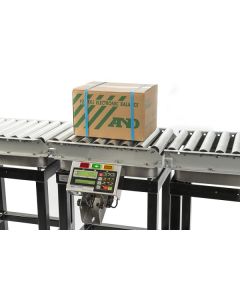In today’s fast-paced and quality-driven manufacturing industry, accuracy and efficiency are paramount. Checkweighers—automated weighing devices that verify the weight of products as they pass through production lines—are essential tools that ensure products meet weight specifications, boost productivity, and reduce waste. Incorporating checkweighers into your production line can significantly improve overall operations and customer satisfaction.
Top 10 benefits of using checkweighers in your production process:
1. Enhanced Product Quality and Consistency
One of the primary benefits of checkweighers is their ability to maintain consistent product quality by ensuring that every item meets the required weight standards. Underweight products may lead to customer dissatisfaction, while overweight items can increase production costs. By accurately monitoring the weight of each product, checkweighers help maintain uniformity and quality, which is essential for brand reputation and consumer trust.
2. Regulatory Compliance and Weight Accuracy
In industries such as food, pharmaceuticals, and cosmetics, meeting regulatory standards is crucial. Checkweighers help companies comply with national and international regulations that require products to be within a specified weight range. By providing precise weight measurements and identifying any non-compliant products, checkweighers reduce the risk of costly fines, recalls, and damage to the company’s reputation.
3. Reduced Product Waste
Accurate weight measurements also help reduce material waste. By identifying and rejecting products that are over the target weight, checkweighers can reduce excess usage of raw materials. This not only decreases waste but also contributes to more efficient resource utilization. Over time, the savings from reduced waste can add up, leading to significant cost reductions for the production line.
4. Improved Efficiency and Speed in Production
Checkweighers operate at high speeds, seamlessly integrating into production lines without disrupting workflow. They are capable of weighing items rapidly as they move along the conveyor, providing instant feedback. This automation ensures that products are checked accurately and consistently, without slowing down the production line. As a result, companies can achieve higher throughput and meet production targets more effectively.
5. Detection of Product Defects and Packaging Issues
In addition to measuring weight, many advanced checkweighers can detect other types of defects, such as improperly sealed packages, missing components, or foreign materials. This feature allows manufacturers to identify and address quality issues in real time, reducing the likelihood of defective products reaching customers. By detecting these issues early, checkweighers enhance product quality and minimize costly returns or recalls.
6. Increased Customer Satisfaction and Loyalty
Customers expect consistency in the products they purchase, and checkweighers play a critical role in meeting these expectations. By ensuring that each item is within the specified weight range, manufacturers can deliver products that meet customer expectations for quality and value. Satisfied customers are more likely to become repeat buyers and loyal advocates for the brand, helping boost sales and foster a positive brand image.
7. Data Collection and Reporting Capabilities
Modern checkweighers are equipped with data collection and reporting capabilities, allowing manufacturers to gather and analyze weight-related data for each product. This information can be used to identify trends, adjust production processes, and make informed decisions to improve efficiency and quality. Data analysis can also help pinpoint areas for improvement, leading to continuous optimization of the production line.
8. Lower Labor Costs and Fewer Human Errors
Manual weight inspection is time-consuming and prone to human error. By automating the weighing process, checkweighers reduce the need for manual labor and minimize the risk of errors associated with manual weighing. With fewer employees required to check product weights manually, labor costs decrease, allowing companies to allocate resources to other critical areas of production.
9. Reduced Risk of Product Recalls
Product recalls can be highly damaging, both financially and reputationally. By ensuring that each product meets specified weight and quality standards, checkweighers reduce the likelihood of recalls due to non-compliance or quality issues. In the long term, avoiding recalls saves costs associated with return logistics, customer compensation, and potential legal expenses, helping protect the company’s reputation and financial stability.
10. Improved Profit Margins
The combined benefits of using checkweighers—such as reducing waste, lowering labor costs, increasing efficiency, and minimizing product recalls—contribute to higher profit margins. Accurate, efficient weighing helps streamline production, optimize resource use, and meet customer expectations, all of which ultimately support profitability and business growth.
Choosing the Right Checkweigher for Your Production Line
With various models and configurations available, selecting the best checkweigher for your production line depends on factors such as production speed, product size, and specific industry requirements. Here are some factors to consider:
- Capacity and Speed: Choose a checkweigher that can handle your production volume without slowing down the line.
- Accuracy and Sensitivity: Different industries may have varying accuracy requirements. For instance, pharmaceuticals require extremely precise measurements.
- Integration Capabilities: Ensure the checkweigher can integrate smoothly with other equipment, such as conveyor systems and quality control systems.
- Data and Reporting: Opt for models that support data collection if you want to analyze weight trends and track quality over time.
- Durability and Hygiene: In food and pharmaceutical industries, stainless steel checkweighers that are easy to clean are preferred.
Conclusion
Incorporating checkweighers into your production line offers numerous benefits that go beyond simple weight measurement. They help maintain product quality, ensure regulatory compliance, reduce waste, increase efficiency, and improve customer satisfaction. By automating the weighing process, checkweighers reduce labor costs, minimize human errors, and support data-driven decision-making, all of which contribute to a more streamlined and profitable production process.
Ultimately, investing in a checkweigher is an investment in quality, efficiency, and the long-term success of your production line. With careful selection and proper implementation, checkweighers can be a transformative addition to your business, helping you stay competitive in today’s demanding industrial landscape.





Comments